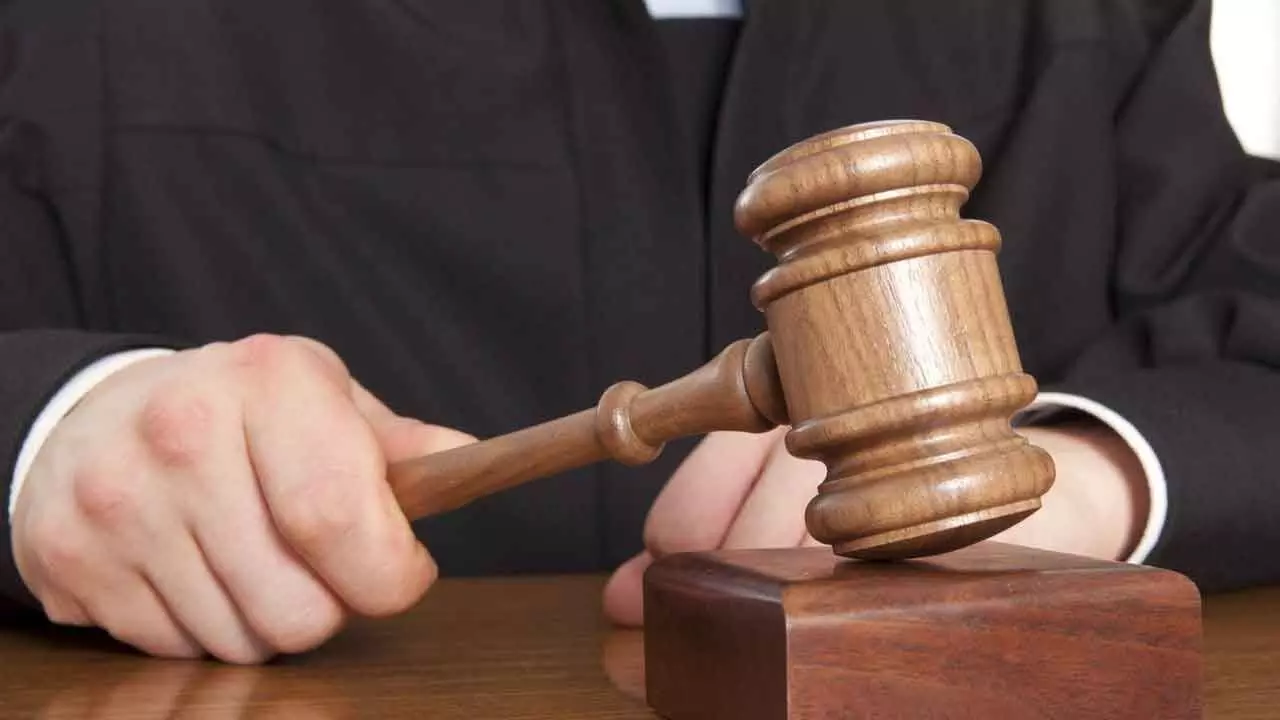Live
- Formula 1: Russell pips Sainz to take pole in Las Vegas GP
- People voted for ideology, rejected dynasty: Sudhanshu Trivedi on Maha victory
- AP, Telangana to receive rains for next three days as low pressure to turn depression
- Kailash Gahlot inducted into BJP’s Delhi election panel
- With state elections over, Indian stock market heads for stability
- Mahayuti's Ladki Bahin Brahmastra demolishes MVA in Maharashtra
- Actor and Youth Ambassador Darasing Khurana Highlights Mental Health Issues with Singapore PM
- Heavy FII selling in India to taper off soon, say market watchers
- Esports Mania Grips India: What are the Trends Fueling this Growth?
- AI-Powered CRM: Shaping the Future of Customer Relationship Management
Just In
Judges come under public gaze at all times


In honour and celebration of the wisdom, integrity, and compassion of judges who uphold justice without fear and favour, one finds many encomiums...
In honour and celebration of the wisdom, integrity, and compassion of judges who uphold justice without fear and favour, one finds many encomiums showered upon judges since ancient times. Judiciary is the last bastion of hope for justice and fairness. History states that judges are always held in high esteem. As their words and actions both inside and outside courts deeply impact the public, judges have to take utmost self-care to stay focused on their onerous roles and responsibilities to perform their arduous duties of delivering fair and just decisions in accordance with the law of the land.
Outside their homes, they spend a life under a constant public glare. Their words and actions are often probed for probity by the society. However, as they sit through arguments in cases as diverse as can be, they cannot but be impelled by the sensitivities and advocates appeal to their emotions. While reason and emotion are edi as opposites, judges take care not to take personal stand on matters of justice – they should be dispassionate lawgivers. Yet, judges are also humans; they are impacted by biases in the society and it is here their self-care and integrity will stand them in good stead, guarding against emotions, moods and biases.
Judges ought to be infallible in matters of ethics and personal behaviour. Thus said Justice S H Kapadia, the 38th Chief Justice of India (12th May, 2010 – 29th September, 2012): “We talk of ethics, the judges normally comment upon ethics among politicians, students and professors and others. But I would say that for a judge, too, ethics, not only constitutional morality but even ethical morality, should be the case.”
That said, the Indian judiciary is not without controversies. For the first time in its history, a sitting judge of Calcutta High Court, Justice C S Karnan, was awarded a jail term for his defamatory remarks against the Supreme Court. Justice Mahesh Chandra Sharma of Rajasthan High Court said in public that peacock is a life-long ‘brahmachari’ (celibate). A Karnataka High Court Judge D V Shylendra Kumar remarked that the then Chief Justice of India K G Balakrishnan was more like a serpent without fangs, who can only hiss but not bite.”
This year on August 8, a five-judge bench of the apex court expunged “unnecessary, gratuitous and unwarranted” remarks from Punjab and Haryana HC judge Rajbir Sehrawat in a judicial order, casting aspersions on the SC’s wisdom. Luckily for the country, judges have been seen to court controversies rarely.
In the present instance, the Supreme Court of India on Friday took a serious exception to the remarks of a High Court Judge for failure to avoid impropriety, and for showing biases in the performance of his judicial duties. It sought a report from the Karnataka High Court over the recent controversial remarks made by Justice Vedavyasachar Srishananda. It is said that Justice Srishananda, hearing a landlord-tenant dispute, referred to a Muslim-majority area in Bengaluru as “Pakistan” and made a misogynistic comment. In one viral video on social media, he appeared to comment that a woman lawyer knew so much about the “opposition party” that she might be able to reveal the colour of their undergarments.
Such comments can rouse public outrage and degrade the value of judges themselves. A code of judicial ethics already exists. Nevertheless, while calling for a report, the CJI D Y Chandrachud said that they may lay down some basic guidelines. The bench rightly stressed that a judicial commentary should align with the decorum expected from courts of law. In this era of social media, when live-streaming has become a vogue, judges need to be extra careful of their words and actions.

© 2024 Hyderabad Media House Limited/The Hans India. All rights reserved. Powered by hocalwire.com






